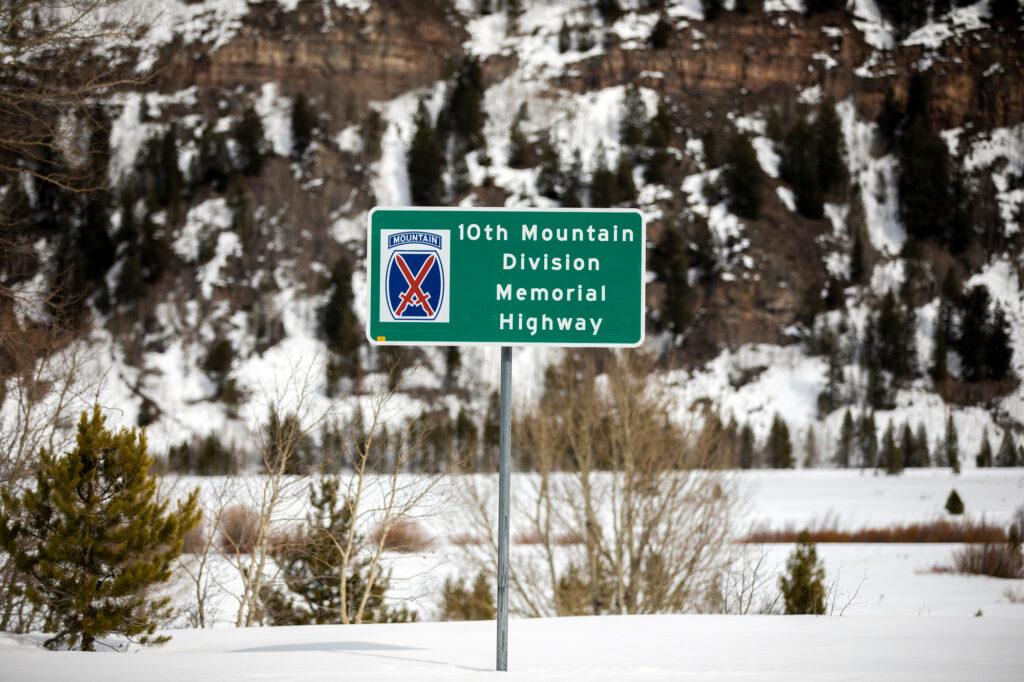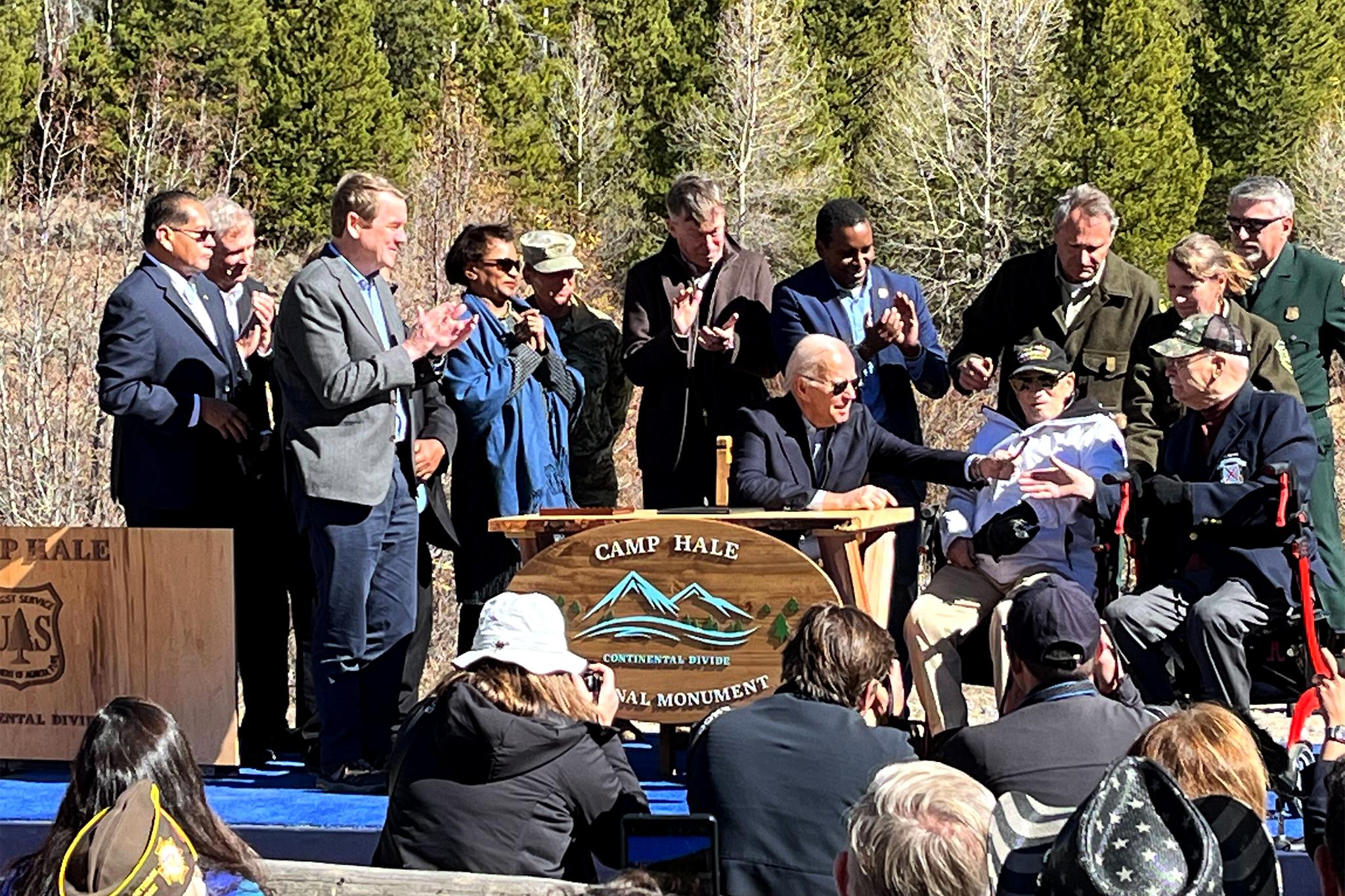
Updated 6:24 p.m. — Oct. 12, 2022
Against a backdrop of mountains, evergreens and yellow-tinged aspen trees, President Joe Biden signed the declaration establishing the Camp Hale — Continental Divide National Monument, as locals who supported the designation cheered.
Biden established the monument “in honor of our nation’s veterans, Indigenous people, and their legacy.”
Another driver was the legacy of public lands in America. Biden recalled his love of Colorado and the West from family vacations to National Parks.
“They are treasures and wonders that define the identity of us as a nation. They’re a birthright, passed down from generation to generation. And they unite us. And that’s what today is all about. We’re not doing it just for today, but for the ages.”
It was the first time Biden has used the Antiquities Act of 1906 to create a new national monument, although he did use the act to restore the size of Grand Staircase-Escalante and Bears Ears national monuments last October. Biden stressed it was a permanent action “that no future president could overturn.”
“You have excellent taste, Mr. President, for your administration’s first national monument designation,” joked U.S. Sen. Michael Bennet.
Bennet, along with Sen. John Hickenlooper, Gov. Jared Polis and U.S. Rep. Joe Neguse, attended the Camp Hale ceremony with Biden. They had written to the president at the end of August pushing for the designation.
For Neguse, the protections helped fulfill a promise to the late Sandy Treat, a former World War II veteran.
“Today we made good, the president made good … on the promise to Sandy, that this land is valued and the service of the 10th Mountain Division will never, never be forgotten.”
For supporters, the designation was cause for celebration — even if it was bittersweet. Treat’s grandson — Sandy Treat IV — also attended Wednesday’s event. He said it was a little sad to see two other veterans his grandfather knew but not to see him. “I was just happy I could be here. I know he’s looking down and he’s proud right now,” he said.
“I think it’s a great choice to honor the military legacy that Camp Hale encompasses,” said Eagle County Commissioner Jeanne McQueeney, recalling a presentation from a veteran who trained there during World War II. “Time is of the essence to get this protected while we still have members of that original 10th Mountain Division.”
The U.S. Forest Service will manage the 53,804-acre national monument and develop a management plan for the area.
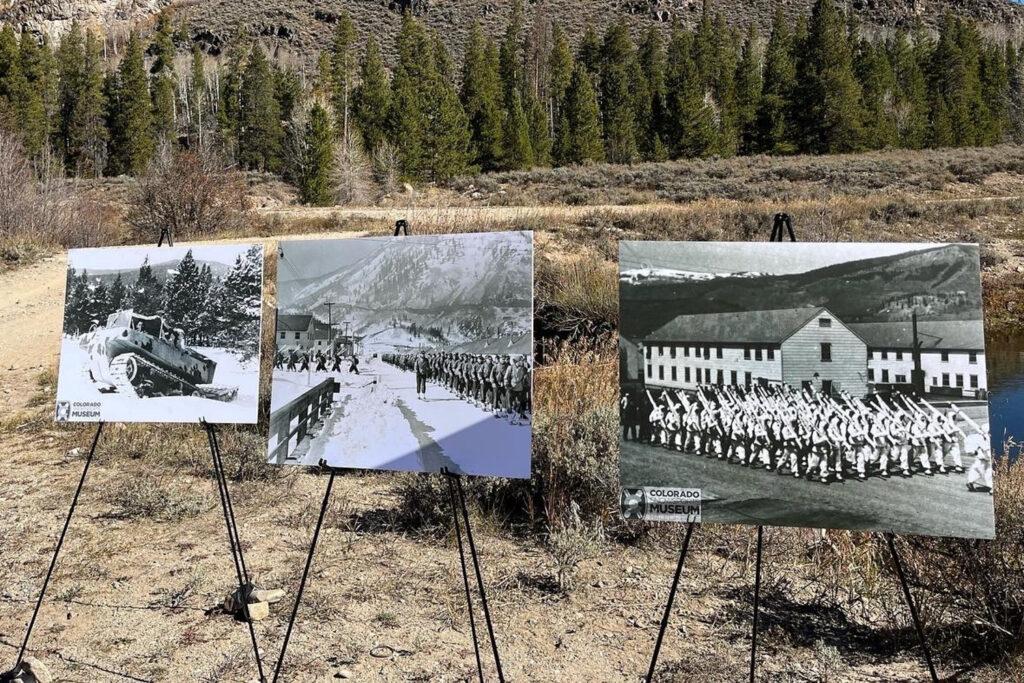
Temporary protections for the Thompson Divide
The Biden administration also took steps towards a temporary ban on mineral extraction for about 225,000 acres in the Thompson Divide. A permanent ban has been pushed by local leaders for more than a decade.
Biden noted it was another priority for the Colorado Democrats. “Let me be clear there is no current or planned oil exploration production in the area. We’re just keeping things as they’ve been for a long time while we study if we can get this done.”
In announcing the designation, the Biden administration noted that pre-existing leases would not be affected and that natural gas-related leases in the Thompson Divide make up less than 1 percent of the more than 3,000 active leases on federal lands in Colorado.
The U.S. Department of the Interior and the U.S. Department of Agriculture announced steps for a temporary withdrawal of mineral rights in about 225,000 acres of lands overseen by the Bureau of Land Management in the Thompson Divide in Garfield, Gunnison and Pitkin counties. The administration is proposing a 20-year withdrawal from disposition under the public land laws, mining laws, and mineral and geothermal leasing laws. Existing rights will be respected.
The BLM and U.S. Forest Service have jointly submitted the withdrawal petition and application to Interior Secretary Deb Haaland. Once it is accepted and put in the Federal Register, the agencies will seek public comments and conduct an analysis of the impacts of a 20-year withdrawal.
Agriculture Secretary Tom Vilsack, who attended Wednesday’s ceremony, described the move as a “pause pending public input,” which he said would not affect existing rights or public lands.
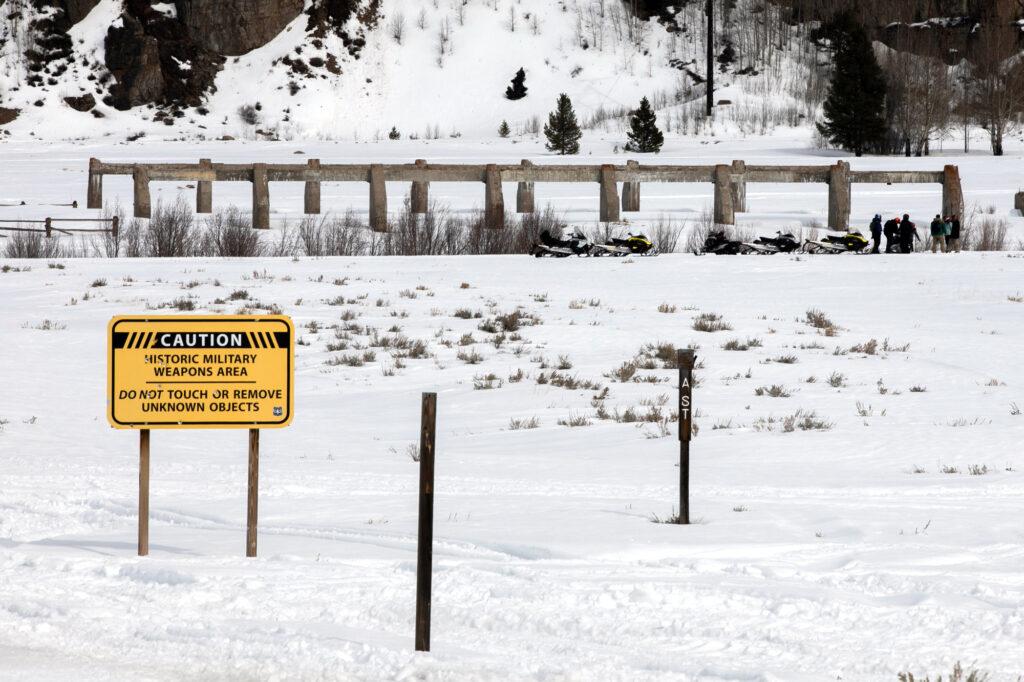
Bill Fales, a rancher who has been working with others in the area to get permanent protections for the Thompson Divide since 2008, said, “to have the President of the United States signing on to help us, is pretty exciting.”
Both Camp Hale and Thompson Divide were part of a Colorado public lands bill, known as the CORE Act, that has stalled in Congress.
Democratic lawmakers also had lobbied the president for the designation and protections for the Thompson Divide through a mineral withdrawal, which would ban new oil and gas leasing, as well as mining, as a way to set up protections for these public areas, as the bill was bogged down in Congress.
In his 2020 senate run, Hickenlooper campaigned on getting the CORE Act passed. And it gives Bennet, who has sponsored elements of the CORE Act for several years, a win as he heads into a hard-fought reelection campaign.
They also requested protections, including new wilderness designations, mineral withdrawal and special management areas in the Grand Mesa, Uncompahgre and Gunnison National Forests, as well as other specific protections for landscapes asked for by local county commissioners in the state, which were also part of the CORE Act, but were not included in any of Wednesday's announcements.
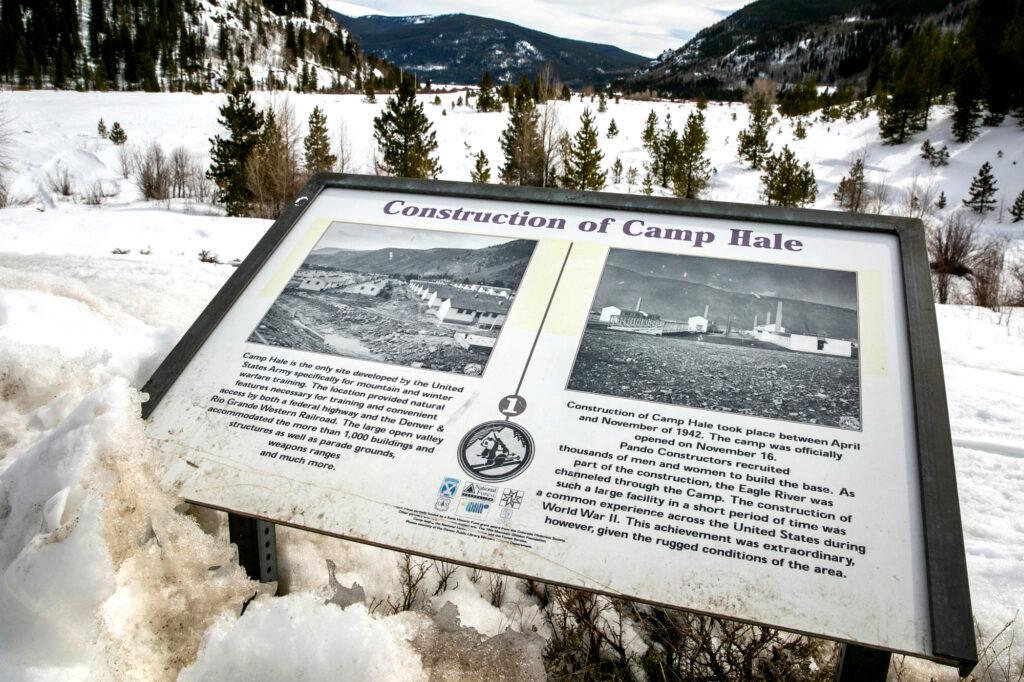
Criticism over the designation
Republicans have questioned the timing of Biden’s designation, suggesting the real goal is to boost Bennet’s reelection bid against Joe O’Dea. The Republican candidate said Camp Hale is “an amazing place,” but has opposed unilateral action to protect the site.
“Joe Biden and Michael Bennet’s record on inflation, border security, and crime are something much less than amazing. Biden and Bennet are moving the country badly in the wrong direction, and no amount of photo-ops in a place we all love will change this fact: accountability from the voters is coming soon,” O’Dea said in a statement.
Colorado’s Republican members of Congress are also against the designation, noting the CORE Act has thus far failed to pass Congress. The bill has gotten through the House numerous times but has been stalled in the evenly split Senate.
GOP U.S. Rep. Lauren Boebert, who opposes the CORE Act, blasted the move.
“Rather than working on real issues like reducing inflation and improving the economy, Joe Biden came to Colorado today to unilaterally lock up hundreds of thousand of acres through the stroke of his pen,” she said in a written statement. She argued that local concerns were not taken into account, pointing to organizations from energy and logging to farming and motorized vehicles, from both inside and outside Colorado, that do not support the designation or the mineral withdrawal. It also included Colorado counties that do not have any land in the CORE Act.
Boebert also wrote a letter to President Biden at the end of August expressing “grave concern” about using the Antiquities Act and other administration actions to increase federal protections on public lands. Colorado GOP Reps. Ken Buck and Doug Lamborn signed on to the letter.
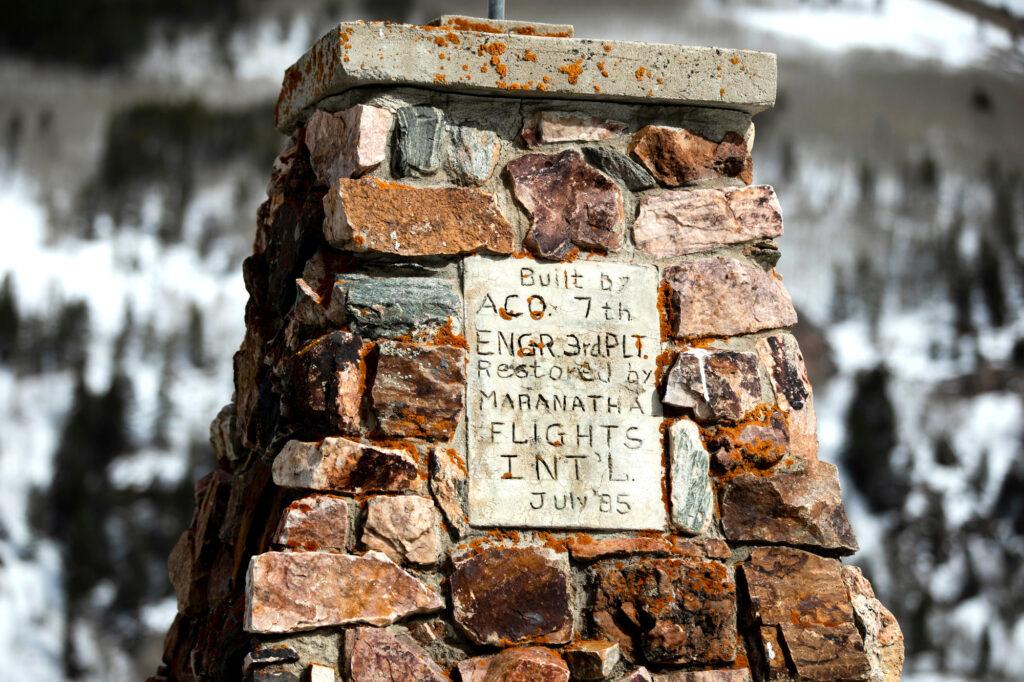
Meanwhile, Bennet, Hickenlooper and Neguse have touted support from Democratic and Republican politicians in counties where CORE Act lands are located. The three lawmakers have amassed letters of support from ranchers, farmers, conservation groups, outdoor recreation groups, descendants of the 10th Mountain Division, and others to demonstrate strong local support for the designation and the withdrawal.
Summit County Commissioner Elisabeth Lawrence disputed the idea that the new designation is a land grab, noting these lands are already publicly held. “This is just further solidifying its importance,” she said.
Supporters of the designation for Camp Hale and Tenmile, as well as the other elements of the CORE Act, said local stakeholders have been working on the issue for over a dozen years.
“I think we’re just at a critical time where people are tired of waiting for Congress to take action,” said John Gale with Backcountry Hunters & Anglers, a non-profit that supports the move. “And they see an opportunity for President Biden to take action utilizing the Antiquities Act to designate Camp Hale and Tenmile Range and acknowledging that this is a pretty special place.”
McQueeney pointed to a poll conducted by the Center for Western Priorities, an environmental group, showing strong support from Coloradans across the political spectrum for the CORE Act, including protections for Camp Hale and Tenmile.
Even with these steps, Aaron Weiss, deputy director of the Center for Western Priorities, and many others said they are not giving up hope that the CORE Act could get through the Senate after the November election during the so-called “lame duck” session.
Regardless of CORE, Weiss hopes “this is the beginning, and not the end of President Biden’s use of the Antiquities Act.”
He said there are a number of other landscapes, with local support, across the country that are ready for national monument designations.
“It’s an opportunity for President Biden to create his conservation legacy,” he said.
